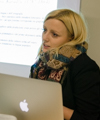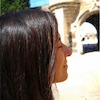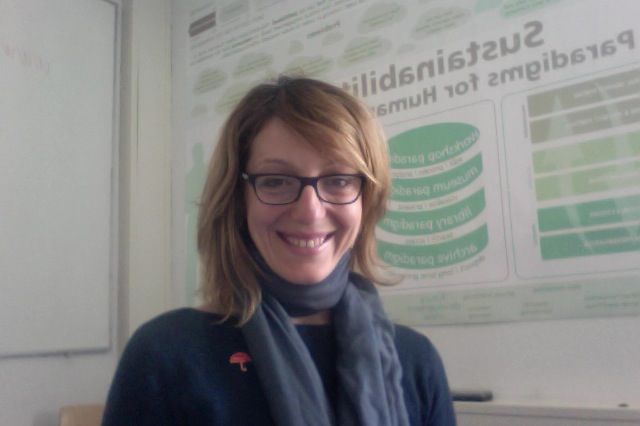Studying at the University of Verona
Here you can find information on the organisational aspects of the Programme, lecture timetables, learning activities and useful contact details for your time at the University, from enrolment to graduation.
Academic calendar
The academic calendar shows the deadlines and scheduled events that are relevant to students, teaching and technical-administrative staff of the University. Public holidays and University closures are also indicated. The academic year normally begins on 1 October each year and ends on 30 September of the following year.
Course calendar
The Academic Calendar sets out the degree programme lecture and exam timetables, as well as the relevant university closure dates..
| Period | From | To |
|---|---|---|
| Semester 1 | Oct 2, 2017 | Jan 20, 2018 |
| Semester 2 | Feb 26, 2018 | Jun 9, 2018 |
| Session | From | To |
|---|---|---|
| Winter session | Jan 22, 2018 | Feb 24, 2018 |
| Summer session | Jun 11, 2018 | Jul 28, 2018 |
| Autumn session | Aug 27, 2018 | Sep 22, 2018 |
| Session | From | To |
|---|---|---|
| LAUREE LINGUE - sessione autunnale a.a. 2016/2017 | Dec 18, 2017 | Dec 21, 2017 |
| LAUREE LINGUE - sessione invernale a.a. 2016/2017 | Mar 23, 2018 | Mar 29, 2018 |
| LAUREE LINGUE - sessione estiva | Jul 16, 2018 | Jul 21, 2018 |
| LAUREE LINGUE - sessione autunnale | Nov 12, 2018 | Nov 17, 2018 |
| LAUREE LINGUE - sessione invernale | Apr 12, 2019 | Apr 18, 2019 |
| Period | From | To |
|---|---|---|
| All Saints Day | Nov 1, 2017 | Nov 1, 2017 |
| Immaculate Conception | Dec 8, 2017 | Dec 8, 2017 |
| Christmas break | Dec 22, 2017 | Jan 7, 2018 |
| Easter break | Mar 30, 2018 | Apr 3, 2018 |
| Liberation Day | Apr 25, 2018 | Apr 25, 2018 |
| Labour Day | May 1, 2018 | May 1, 2018 |
| Patron Saint Day | May 21, 2018 | May 21, 2018 |
| Republic Day | Jun 2, 2018 | Jun 2, 2018 |
| Summer break | Aug 13, 2018 | Aug 18, 2018 |
Exam calendar
Exam dates and rounds are managed by the relevant Foreign Languages and Literatures Teaching and Student Services Unit.
To view all the exam sessions available, please use the Exam dashboard on ESSE3.
If you forgot your login details or have problems logging in, please contact the relevant IT HelpDesk, or check the login details recovery web page.
Academic staff
 alessandro.bigardi@univr.it
alessandro.bigardi@univr.it

Bradas Marija
 marija.bradas@univr.it
marija.bradas@univr.it
 paolamaria.caleffi@univr.it
paolamaria.caleffi@univr.it
 veronica.gobbato@univr.it
veronica.gobbato@univr.it
 tiziana.mancinelli@univr.it
tiziana.mancinelli@univr.it
 silvia.zollo@univr.it
silvia.zollo@univr.it
Study Plan
The Study Plan includes all modules, teaching and learning activities that each student will need to undertake during their time at the University.
Please select your Study Plan based on your enrollment year.
1° Year
| Modules | Credits | TAF | SSD |
|---|
1st foreign language2nd foreign language1st foreign literature2nd foreign literature2° Year activated in the A.Y. 2018/2019
| Modules | Credits | TAF | SSD |
|---|
1st foreign language2nd foreign language1st foreign literature2nd foreign literatureOne course to be chosen among the following3° Year activated in the A.Y. 2019/2020
| Modules | Credits | TAF | SSD |
|---|
1st foreign language2nd foreign languagePhilology of the first or second language| Modules | Credits | TAF | SSD |
|---|
1st foreign language2nd foreign language1st foreign literature2nd foreign literature| Modules | Credits | TAF | SSD |
|---|
1st foreign language2nd foreign language1st foreign literature2nd foreign literatureOne course to be chosen among the following| Modules | Credits | TAF | SSD |
|---|
1st foreign language2nd foreign languagePhilology of the first or second language| Modules | Credits | TAF | SSD |
|---|
Legend | Type of training activity (TTA)
TAF (Type of Educational Activity) All courses and activities are classified into different types of educational activities, indicated by a letter.
Spanish literature 2 (2018/2019)
Teaching code
4S002929
Teacher
Coordinator
Credits
9
Language
Spanish
Scientific Disciplinary Sector (SSD)
L-LIN/05 - SPANISH LITERATURE
Period
I semestre dal Oct 1, 2018 al Jan 12, 2019.
Learning outcomes
The course aims to provide a good knowledge of Spanish literature from its origins to the seventeenth century (historical context, texts, genres, movements and authors). At the end of the course the student will have to demonstrate to understand complex texts and implicit meanings and will have to express himself in Spanish fluently and spontaneously; he/shemust be able to contextualize literary phenomena, to argue about the teaching contents in written and oral form in Italian and in Spanish.
Program
The course aims to provide advanced level skills in the Spanish literature of Renaissance and Baroque and to develop the knowledge with the direct experience of reading and analyzing two classics, Don Quixote of Cervantes and one in student’s choice. It also tends to develop the consciousness on the transition from the printed book that was invented in the Renaissance to the present digital paradigm. The course will be held in Spanish.
Parte I: La "Edad de Oro" en la literatura española: Renacimiento y Barroco (1500-1600)
Temi: La originalidad de "La Celestina" en su contexto literario
Garcilaso la renovación de la lírica y el petrarquismo
La narrativa del siglo XVI: La novela de caballería La novela bizantina La novela pastoril La novela morisca
El "Lazarillo de Tormes" y el nacimiento del pícaro literario; Mateo Alemán y la plenitud de la novela picaresca
La obra de Cervantes entre dos siglos: el "Quijote" (1605-1615) y las "Novelas ejemplares"
Góngora y el "culteranismo". Quevedo y Lope, poetas antigongorinos
Lope de Vega, Tirso de Molina y Calderón de la Barca en el esplendor del teatro español
Lettura di un classico a scelta tra i seguenti:
Fernando de Rojas, La Celestina, Cátedra
Anonimo, Lazarillo de Tormes, Cátedra
Lope de Vega, La dama sciocca, Venezia, Marsilio (ed. bilingue)
Tirso de Molina, El burlador de Sevilla, Cátedra
Testi di riferimento
L. Rodríguez Cacho, Manual de historia de la literatura española. Vol. I, Siglos XIII-XVII, Castalia
José Manuel Lucía Megías, Elogio del texto digital: Claves para interpretar el nuevo paradigma Madrid 2012, Fórcola Ediciones
Parte II: El Don Quijote de Cervantes: ¿historia o ficción?
Introduzione: Daniel Pennac, Come un romanzo, Feltrinelli
Lettura commentata di M. de CERVANTES, Don Quijote de la Mancha, ed. Francisco Rico, Madrid, Alfaguara, 2016
| Author | Title | Publishing house | Year | ISBN | Notes |
|---|---|---|---|---|---|
| M. de CERVANTES | Don Quijote de la Mancha, ed. Francisco Rico | Alfaguara | 2016 | ||
| José Manuel Lucía Megías | Elogio del texto digital. Claves para interpretar el nuevo paradigma | Madrid, Fórcola | 2012 | ||
| Lina Rodriguez Cacho | Manual de historia de la literatura española. Vol. I, Siglos XIII-XVII, | Castalia | 2015 |
Examination Methods
For attending students there is a partial written exam (optional, open questions and multiple choice tests) and a final oral exam. The partial test will cover the contents of the first part of the program, the oral exam will cover the second part of the program.
For non-attending students and for attending students who failed the partial exam, the final oral exam on the entire course program is scheduled.
Both the partial and the final oral examination take place in Spanish and are aimed at verifying the competence of language, the critical skills and the depth of the knowledge gained.
Type D and Type F activities
To discover all the teaching activities accredited by the foreign teaching college click here
Career prospects
Module/Programme news
News for students
There you will find information, resources and services useful during your time at the University (Student’s exam record, your study plan on ESSE3, Distance Learning courses, university email account, office forms, administrative procedures, etc.). You can log into MyUnivr with your GIA login details: only in this way will you be able to receive notification of all the notices from your teachers and your secretariat via email and soon also via the Univr app.
Student login and resources
Assegnazione tutore
Attività accreditate D/F
Calendario didattico dettagliato
Cambio lingua curriculare
Competenze informatiche
Competenze linguistiche (prima e seconda lingua)
Competenze linguistiche in triennale (terza lingua CFU F)
Compilazione del piano didattico
Corso di Lingua portoghese
Erasmus+ e altre esperienze all'estero
Linguistic training CLA
Graduation
List of theses and work experience proposals
| Stage | Research area |
|---|---|
| PROGETTO MAMBRINO Stage per bibliografia | Various topics |
Stage e tirocini
Nel piano didattico della laurea triennale in Lingue e culture per l’editoria (L11 ED) è previsto un tirocinio/stage obbligatorio (CFU 6).
Le attività di stage sono finalizzate a far acquisire allo studente una conoscenza diretta in settori di particolare interesse per l’inserimento nel mondo del lavoro e per l’acquisizione di abilità professionali specifiche.
Le attività di stage sono svolte sotto la diretta responsabilità di un singolo docente presso studi professionali, enti della pubblica amministrazione, aziende accreditate dall’Ateneo veronese.
I crediti maturati in seguito ad attività di stage saranno attribuiti secondo quanto disposto nel dettaglio dal “Regolamento d’Ateneo per il riconoscimento dei crediti maturati negli stage universitari” vigente.
- Tutte le informazioni in merito agli stage per futuri studenti sono disponibili alla pagina Stage e tirocini.
- Tutte le informazioni in merito agli stage per studenti iscritti sono pubblicate in MyUnivr - come fare per - stage e tirocini.
- Tutte le informazioni in merito agli stage per le aziende sono disponili alla pagina Stage e tirocini per azienze.
Ulteriori informazioni al seguente link https://www.univr.it/it/i-nostri-servizi/gestione-carriere-studenti-lingue-e-letterature-straniere/stage-e-tirocini-lingue-e-letterature-straniere

 +39 045802 8409
+39 045802 8409






























